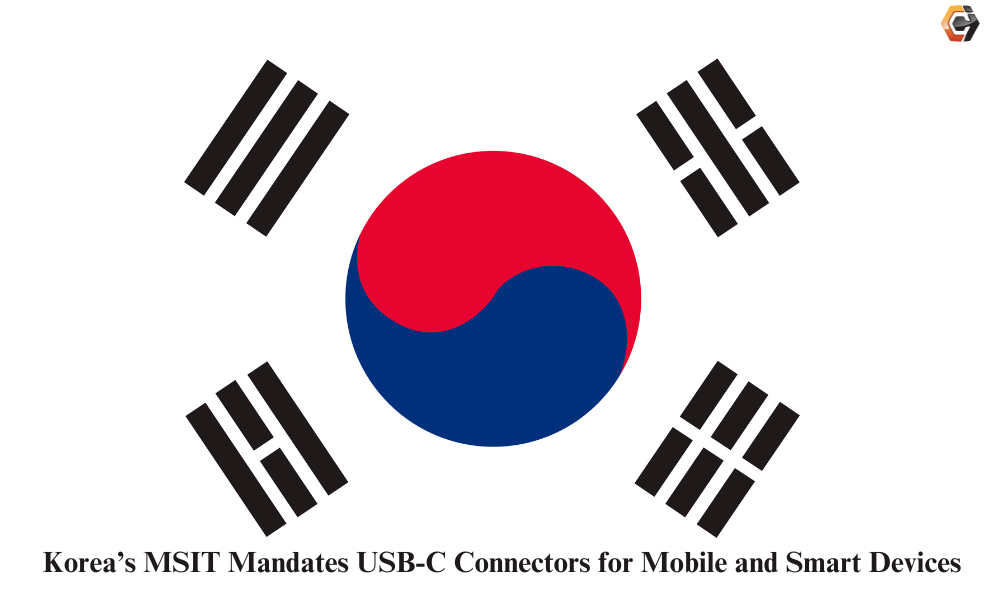The Ministry of Science and ICT of Korea has announced new Technical Standards for charging and data transmission for broadcasting and communications equipment, including mobile and smart devices. Published recently, these standards mandate the adoption of USB-C type receptacle connectors across a wide range of electronic devices. The move aligns with global trends promoting standardization, sustainability, and consumer convenience.
Under the new standards, devices such as cellular phones, tablets, digital cameras, headphones, headsets, portable video game controllers, portable speakers, e-book readers, keyboards, mice, portable navigation devices, and earphones must be equipped with USB-C type connectors starting February 14, 2025. For laptops, the requirement will come into effect slightly later, beginning April 1, 2026.
The introduction of USB-C as a universal charging and data transfer interface aims to address several key concerns. First, it seeks to reduce electronic waste by eliminating the need for multiple types of chargers and cables. By standardizing the connector type, consumers can reuse chargers across multiple devices, significantly reducing environmental impact.
Second, USB-C offers superior functionality compared to older connector types. Its versatility allows for faster charging, higher data transfer speeds, and improved compatibility with a Wide range of devices and accessories. The adoption of a universal standard will simplify the user experience, making device connectivity more straightforward and efficient.
The phased implementation timeline provides manufacturers with sufficient time to transition their products to meet the new requirements. While many devices in the market have already adopted USB-C as a standard connector, the mandate ensures universal compliance, closing gaps in the ecosystem.
Korea’s initiative mirrors similar regulatory efforts in other regions, such as the European Union’s USB-C mandate, demonstrating a global push toward harmonizing technology standards. These measures are expected to benefit consumers by reducing costs associated with purchasing proprietary accessories and fostering a more sustainable technology lifecycle.
As the deadline approaches, device manufacturers will need to adapt their designs to align with these standards, paving the way for a more connected and eco-friendly future.
If you would like more information about Korea’s MSIT approval requirements, please get in touch with iCertifi, your trusted partner.

